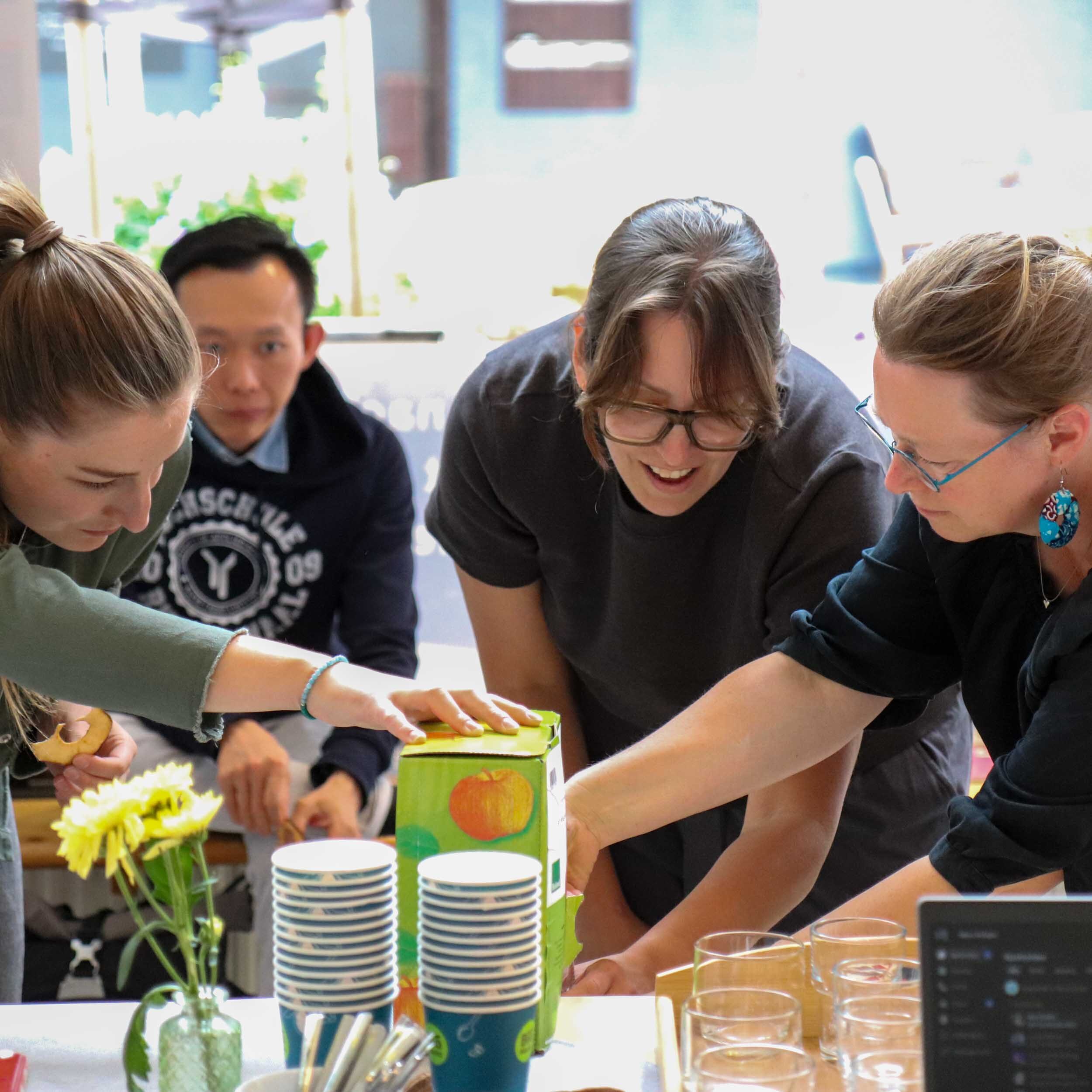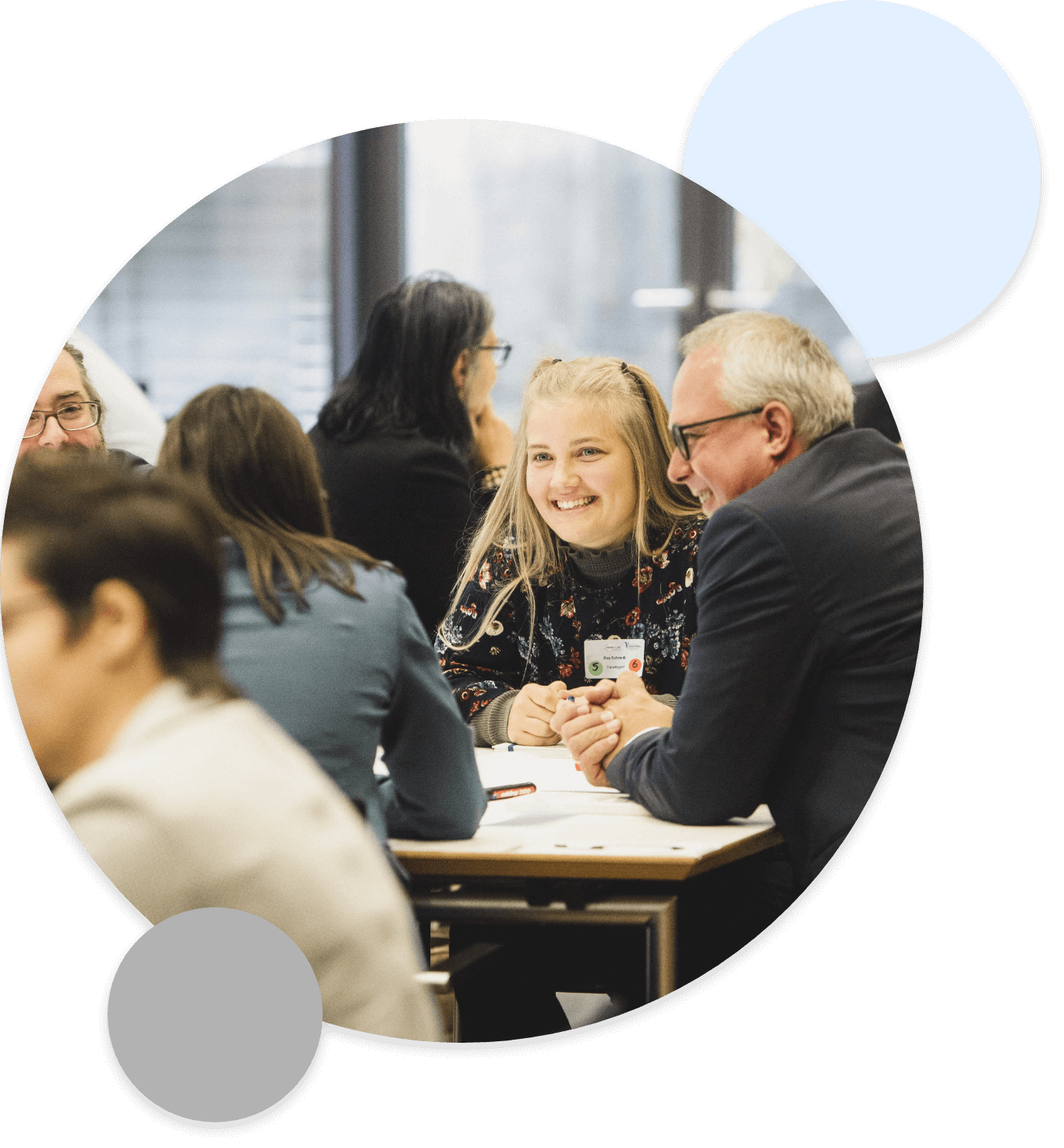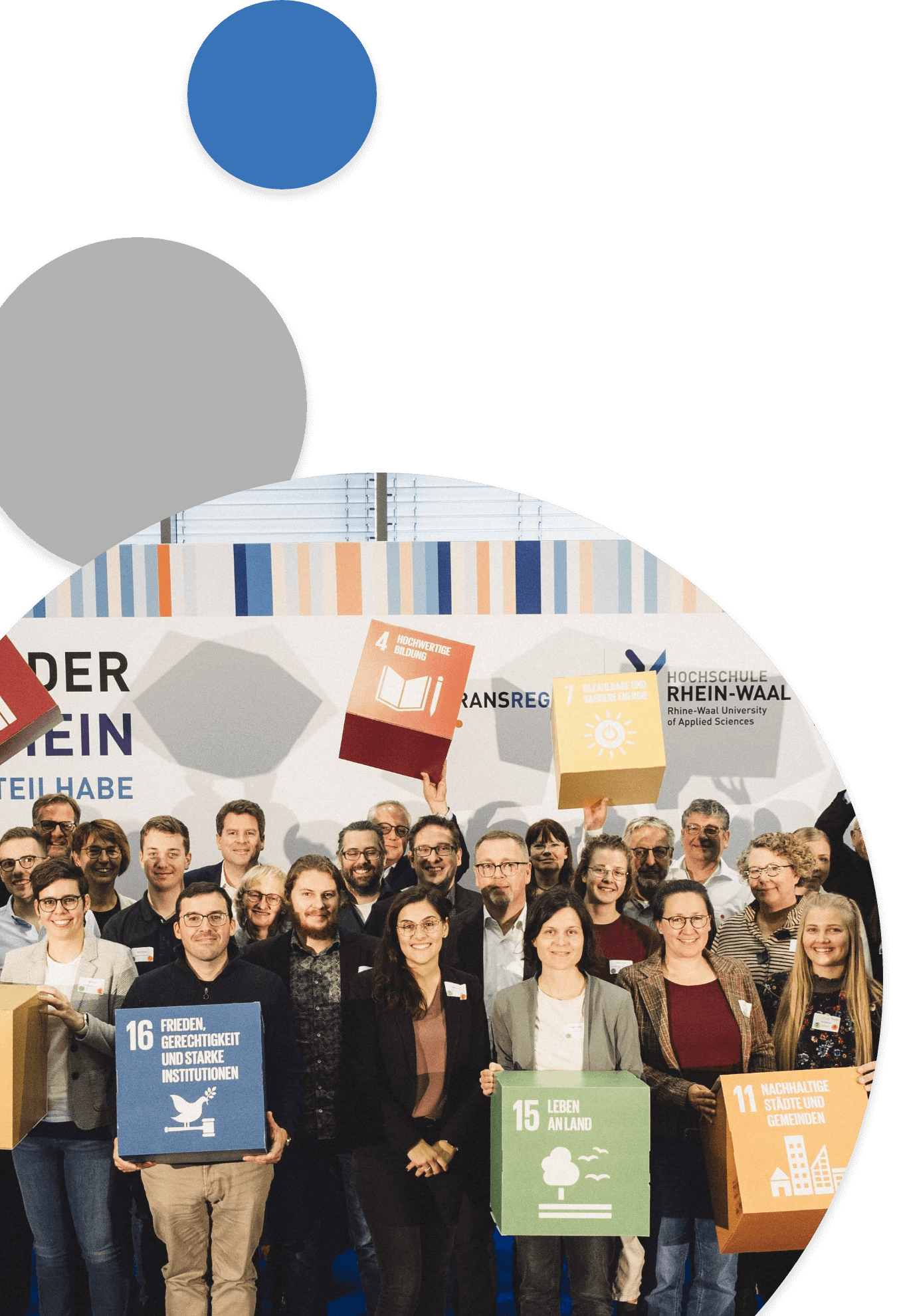
Do you know what you are eating?
The Sustainable Food Week at DialogPunkt Kleve came to a close on the evening of 21 June 2024 with a tasting of regional products from existing agroforestry systems or those currently being planned. These are land use systems in which woody plants grow on the same area as arable crops and/or animals.
Themed “Taste of Niederrhein”, Dr Ana Kreter, Project Coordinator Agroforst Reallabor in the TransRegINT project, and Samuel Lemmen, Research Associate in the Agroforst Reallabor, gave an entertaining presentation during which the various agroforestry products could be savoured. They not only answered the question “What is an agroforestry product?” and presented various regional management concepts. No, the visitors were allowed to ask themselves: “Do you know what you are eating?”
How do we consume our food?
Where do you buy your food? In the supermarket or directly from producers? Is the origin of your products important to you? What do you look for when shopping? Do price, origin, quality or organic certification play a role? With questions like these, Ana and Samuel emphasised that the Agroforestry Living Laboratory is about more than just establishing woody plants in agriculture. After all, the Agroforstry Living Laboratory sees itself as an innovation platform for sustainable regional development. This means that they will also support producers in developing distribution channels and marketing.

Apple, goat and lavender – Proud of the products of our region
And then it was time to sample. While the individual producers and their specialities were presented, the visitors were able to taste the products. Apple crisps, apple syrup and apple juice from Berkhöfel in Bedburg-Hau, walnuts and walnut brownies from Hof Birgel in Kalkar and goat ice cream in three flavours from the Hogefelderhof organic farm in Kalkar. Finally, there was something for the eyes and nose thanks to the magnificent lavender plants from Dercks Gartenbau in Geldern-Walbeck.
It is easy to understand why the apple is an agroforestry product: Berkhöfel runs a country sheep farm on the orchard meadows. Anyone who regularly follows our news will know that the Birgel farm in Kalkar is a co-operation partner of the Agroforstry Living Laboratory: at the beginning of the year, around 60 walnut trees were planted in Kalkar, in addition to the walnut trees they already had. But what do goats and lavender have in common with agroforestry?
Jelmer de Groot from the Hogefelder Hof organic farm would like to let his 150 or so German goats graze on meadow orchards. A challenge, as goats like to eat leaves, bark and even small branches. Together with the Agroforstry Living Laboratory, he will introduce an agroforestry system and research various tree protection measures against browsing in practice.
Mr Dercks would also like to implement agroforestry in his pot plant nursery. The catch: the automatic irrigation systems in the production areas do not allow the traditional planting of woody strips between the perennial plants. Here, the Agroforst Reallabor is involved in the planning of an olive agroforestry in the infiltration troughs.
Further information
Click here for the other events planned at DialogPunkt Kleve until 28 June 2024. Maybe we’ll see you there?
We would like to thank everyone involved for their commitment and look forward to many more exciting and informative events at DialogPunkt Kleve.




Kommentare